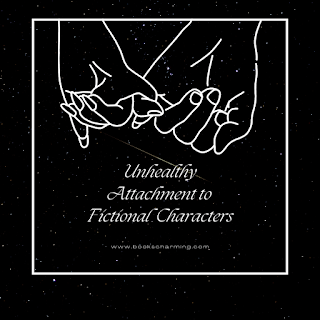However, for some individuals, this fascination with fictional characters can cross the line from healthy enjoyment to an unhealthy attachment that can negatively impact their mental health and social life.
In this article, we will explore the phenomenon of an unhealthy attachment to fictional characters and provide scientific examples and real-life stories to help understand the risks and effects.
What is Unhealthy Attachment to Fictional Characters?
Unhealthy attachment to fictional characters is a condition in which an individual becomes emotionally attached to a fictional character to the extent that it negatively impacts their daily life, relationships, and mental health.
This phenomenon is also known as parasocial attachment or parasocial relationships. It occurs when a person develops a one-sided relationship with a character from a book, movie, TV show, or video game, perceiving them as real and forming an emotional connection with them.
Examples of Unhealthy Attachments to Fictional Characters:
There are many examples of an unhealthy attachment to fictional characters in popular culture. One of the most famous is the case of Mark David Chapman, who became obsessed with the fictional character Holden Caulfield from J.D. Salinger's The Catcher in the Rye. Chapman believed that he and Holden shared a similar worldview and even identified himself as the character. In 1980, Chapman assassinated John Lennon, citing Holden Caulfield as his inspiration.
Another example is the case of a Japanese man who developed an unhealthy attachment to a character from the dating simulation game LovePlus. The man became so emotionally invested in the character that he held a wedding ceremony with her, complete with a real-life priest, a cake, and guests. He even went on a honeymoon to Guam with a Nintendo DS console, where he could continue interacting with the character.
Effects of Unhealthy Attachment to Fictional Characters:
An unhealthy attachment to fictional characters can negatively affect an individual's mental health, relationships, and social life. It can lead to feelings of loneliness, isolation, and a distorted perception of reality. Individuals may withdraw from real-life relationships, preferring the comfort and safety of their parasocial relationships. It can also impact their ability to form healthy relationships in the future, as their expectations and standards may be based on unrealistic and idealized portrayals of relationships in fiction.
Research has shown that parasocial relationships can be especially harmful to adolescents, who are still developing their social and emotional skills. A study published in the Journal of Adolescence found that adolescent girls who formed parasocial relationships with fictional characters from TV shows had higher levels of anxiety and depression than those who did not develop such relationships.
How to Address Unhealthy Attachment to Fictional Characters?
If you or someone you know is struggling with an unhealthy attachment to a fictional character, there are several ways to address it. One of the most effective methods is therapy, where a trained professional can help individuals understand the root causes of their attachment and develop healthy coping strategies.
Examples of Unhealthy Attachments to Fictional Characters:
There are many examples of an unhealthy attachment to fictional characters in popular culture. One of the most famous is the case of Mark David Chapman, who became obsessed with the fictional character Holden Caulfield from J.D. Salinger's The Catcher in the Rye. Chapman believed that he and Holden shared a similar worldview and even identified himself as the character. In 1980, Chapman assassinated John Lennon, citing Holden Caulfield as his inspiration.
Another example is the case of a Japanese man who developed an unhealthy attachment to a character from the dating simulation game LovePlus. The man became so emotionally invested in the character that he held a wedding ceremony with her, complete with a real-life priest, a cake, and guests. He even went on a honeymoon to Guam with a Nintendo DS console, where he could continue interacting with the character.
Effects of Unhealthy Attachment to Fictional Characters:
An unhealthy attachment to fictional characters can negatively affect an individual's mental health, relationships, and social life. It can lead to feelings of loneliness, isolation, and a distorted perception of reality. Individuals may withdraw from real-life relationships, preferring the comfort and safety of their parasocial relationships. It can also impact their ability to form healthy relationships in the future, as their expectations and standards may be based on unrealistic and idealized portrayals of relationships in fiction.
Research has shown that parasocial relationships can be especially harmful to adolescents, who are still developing their social and emotional skills. A study published in the Journal of Adolescence found that adolescent girls who formed parasocial relationships with fictional characters from TV shows had higher levels of anxiety and depression than those who did not develop such relationships.
How to Address Unhealthy Attachment to Fictional Characters?
If you or someone you know is struggling with an unhealthy attachment to a fictional character, there are several ways to address it. One of the most effective methods is therapy, where a trained professional can help individuals understand the root causes of their attachment and develop healthy coping strategies.
Additionally, individuals can try to limit their exposure to the fictional character, seek out real-life relationships and experiences, and engage in activities promoting self-care and self-discovery.
Conclusion:
Unhealthy attachment to fictional characters is a complex phenomenon that can seriously affect an individual's mental health and social life. Understanding the risks and effects of parasocial relationships and seeking help, if necessary, is essential.
Conclusion:
Unhealthy attachment to fictional characters is a complex phenomenon that can seriously affect an individual's mental health and social life. Understanding the risks and effects of parasocial relationships and seeking help, if necessary, is essential.
By addressing unhealthy attachments and developing healthy coping strategies, individuals can improve their mental and emotional well-being and form healthy relationships with fictional characters and real people.

No comments:
Post a Comment